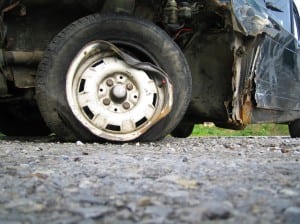What to look for when buying car insurance
 You don’t want to wait until you are in a car accident to think about insurance. Car insurance is required by law, but what kind of insurance do you need? We’ve provided some general guidelines offered from the Wall Street Journal that you should use when buying insurance or thinking of updating your policy.
You don’t want to wait until you are in a car accident to think about insurance. Car insurance is required by law, but what kind of insurance do you need? We’ve provided some general guidelines offered from the Wall Street Journal that you should use when buying insurance or thinking of updating your policy.
The following policies cover you when you are at fault in an accident:
Liability coverage: This covers liability and expenses when you’re at fault in the accident. The money will go toward the people in the other car, but does not cover the people riding with you.
Bodily Injury Liability: This pays for the medical expenses of people injured in a crash when you are at fault. There are maximums with this, though, so be sure to choose carefully.
Property Damage Liability: This pays for damage done to other cars if you are at fault. Sometimes, this policy goes along with Bodily Injury Liability to cover up to $10,000 in damages.
The following policies cover you and your vehicle in an accident:
Personal Injury Protection: This covers you and your passengers’ medical expenses after an accident. If you lose time at work because of the accident, this policy may also cover part of your lost wages.
Uninsured/Underinsured Motorist Coverage: This policy helps cover costs if you are hit by someone without insurance or minimal coverage.
Collision: This policy covers repairs to your car after an accident.
Comprehensive: This covers costs to your car if it is stolen or damaged in a situation other than a motor vehicle accident.
Almost every state requires car owners to have auto insurance or some kind of minimum coverage. You should check your state government website to see the minimum rates. You will also want to consider what it means to have “minimum coverage.” If you do end up in an accident, you can end up on the hook for costs that exceed your coverage: medical bills associated with any injuries, lost wages from missed work, and other costs. A good tip is to have as much insurance coverage as your assets are worth.
If you’ve been injured in an accident that was someone else’s fault, you may have a claim to compensation for your medical bills, lost wages, and pain and suffering.
